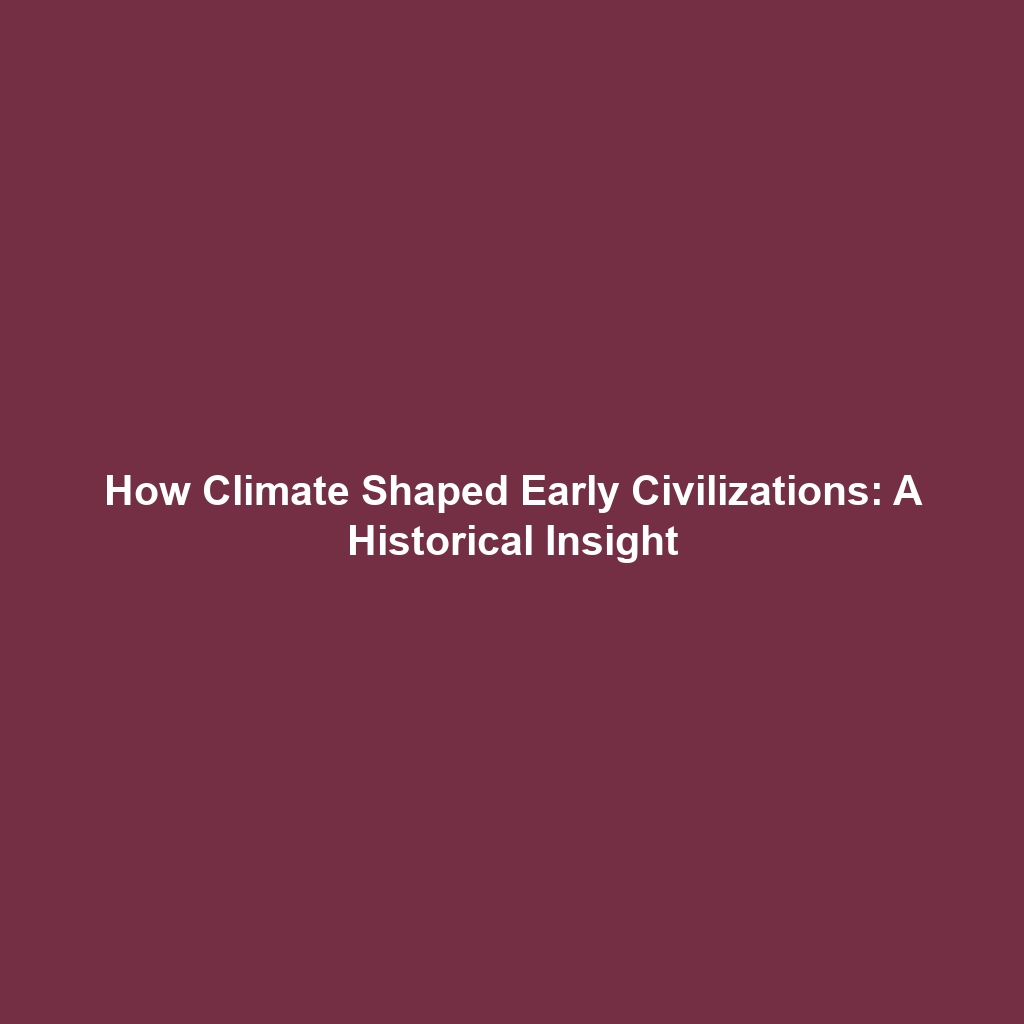Climate and the Rise of Early Civilizations
Introduction: The intricate relationship between climate and the rise of early civilizations is a significant aspect of Climate History. Understanding how shifts in climate impacted human societies provides valuable insights into how environmental factors have shaped our past. Civilizations such as the Mesopotamians and Egyptians thrived in particular climatic conditions, and their development contributes to a broader understanding of climate’s role in human history. This article delves into how climatic changes influenced these early societies and the lessons that can still be applied today.
Key Concepts
Several major concepts emerge when exploring Climate and the Rise of Early Civilizations. These include:
1. Environmental Influences on Settlements
The availability of water, suitable land, and favorable weather patterns dictated where early humans could settle. Civilizations often arose in river valleys, like the Nile, Indus, and Tigris-Euphrates, where fertile soil and irrigation possibilities were abundant.
2. Sustainability and Resource Management
Early civilizations had to innovate and adapt to their environments, making decisions that impacted their sustainability. The study of these practices helps researchers understand historical approaches to resource management.
3. Climate Change as a Catalyst for Transformation
Climate fluctuations often acted as catalysts for significant socio-political changes, leading to migrations, conflicts, or the collapse of civilizations. Such insights are crucial in the study of Climate History.
Applications and Real-World Uses
Understanding Climate and the Rise of Early Civilizations has practical applications, especially in the field of Climate History:
- How reconstructing ancient climate conditions can improve modern agricultural practices.
- Applications of historical methods of resource management to tackle current sustainability issues.
- Using knowledge from past societal adaptations to prepare for future climate challenges.
Current Challenges
The study of Climate and the Rise of Early Civilizations faces several challenges:
- Challenges of data availability: Historical records are often sparse and can be misleading.
- Issues in interpretation: Different disciplines interpret climatic data in various ways, leading to potential biases.
- Limited understanding of ancient technologies and practices used for climate adaptation.
Future Research and Innovations
Future research on Climate and the Rise of Early Civilizations is poised to leverage advancements in technology:
- Innovations in climate modeling and simulation techniques may provide clearer insights into historical climate patterns.
- Next-gen archaeological methods, such as satellite imagery, can identify ancient settlement patterns in relation to climatic shifts.
Conclusion
In summary, the relationship between climate and the rise of early civilizations is critical to understanding Climate History. The lessons learned from ancient societies’ adaptations to their environments continue to offer guidance for contemporary challenges. To delve deeper into these topics, consider exploring related areas such as sustainability practices in ancient cultures or the impact of climate change on modern society.
